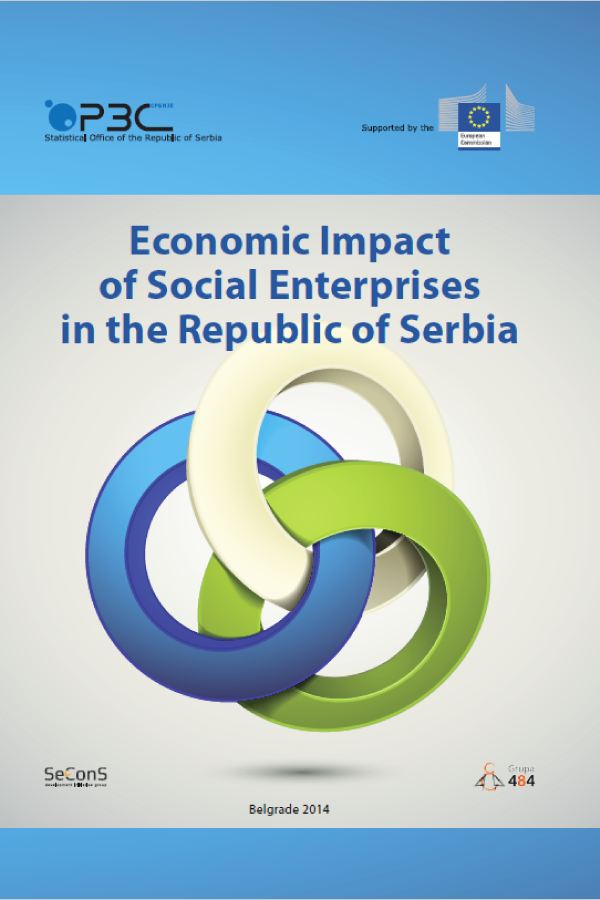This publication shows the data required for establishing the economic and social significance of social enterprises in the Republic of Serbia. The economic impact of social enterprises is observed for the first time according to the conceptual framework of national accounts as the generally accepted international standard on the evaluation of economic activities at the national level.
In 2012, 1196 social enterprises operated in the Republic of Serbia. In the same year they achieved gross value added in the amount of 6 819.2 million dinars, which accounted for 0.2 per cent of the Republic of Serbia’s GDP. They employed 10 326 persons, which accounted for 0.6 per cent of the total number of employees in the country. More than a half (58.6 per cent) was employed in cooperatives. In addition to the persons paid for their work, social enterprises sector also engaged 23 836 volunteers. The biggest portion of volunteers (91.1 per cent) was engaged in citizens associations.
Social function of social enterprises was rather weak, which is in line with their economic capacity. The sector combines employment of vulnerable categories of population and allocation of part of income for social purposes. Enterprises for persons with disabilities that received significant subsides from the state were also the biggest generator of employment. Cooperatives, as the most numerous type of social enterprises, exhibit a very feeble social function. They do not generate more significant employment, neither a prominent number of them earmark more than half of income for solving problems of the local community or vulnerable categories of population.













